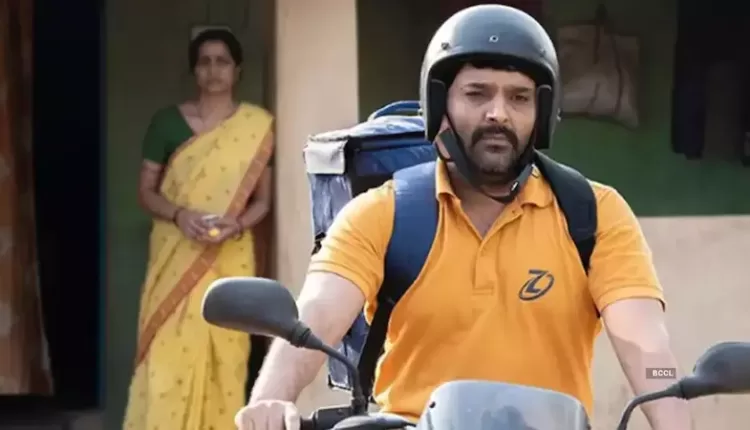India has always had a complicated relationship with its socioeconomic inequalities since it is a country of contrasts and contradictions. On the one hand, the nation has made outstanding progress in recent decades in terms of economic development and expansion. On the other side, there are still millions of individuals who are struggling to make ends meet, like Manas Singh Mahto, a gig worker from Bhubaneswar.
The third film directed by Nandita Das, Zwigato, is a moving and potent depiction of the difficulties of those like Manas who have been marginalized in Hindi cinema and public conversation. It is a movie that shines a light on India’s darker realities, which are sometimes ignored in the name of progress.
Zwigato movie cast: Shahana Goswami, Kapil Sharma
Zwigato movie director: Nandita Das
Zwigato movie rating: 3 stars
The Hidden Cost of the Gig Economy
Several Indians, including Manas Singh Mahto (Kapil Sharma) and his wife Pratima (Shahana Goswami), deal with the worries of gig workers on a daily basis. While they deal with the demands of the gig economy and the harsh reality of living in a culture that frequently considers them as disposable commodities, Zwigato portrays their everyday difficulties.
From Manas’ frantic attempts to complete the necessary number of deliveries to obtain the necessary number of stars to Pratima’s disobedient actions of leaving the house to work as a cleaner or occasionally give massages to the affluent, there are many examples of desperate attempts. Zwigato illustrates how precarious their lives are. It highlights the precarious position of gig workers, who are continuously at the whim of the “software” that manages every minute of their waking lives.
The Grim Truth of Inequality
The film does not hold back when it comes to tackling the ugly realities of India’s startling wealth discrepancies. It serves as a reminder that the pandemic has only served to exacerbate this divide, with more than “five crore Indians currently unemployed.” Manas is told by an unfriendly figure that there are millions of people vying for his job and that no one will care if he quits, which highlights the heartlessness of the gig economy.
Zwigato depicts the predicament of gig workers who are forced to work unending “shifts” without a break for lunch or a well-earned rest. As political activist Swanand Kirkire’s protest gathering is muffled by loudspeakers and participants are taken away, it exposes the blatant entitlement of the wealthy and powerful.
A Ray of Hope
Zwigato is not a miserabilist movie, in spite of the awful truths it depicts. It achieves a delicate balance between recognising the struggles of its characters and presenting a glimmer of optimism. It challenges us to watch and acknowledge the sufferings of people like Manas and Pratima.
Zwigato, which was filmed in Bhubaneswar, gives the movie a new feel and flavour. Both Shahana Goswami and Kapil Sharma give outstanding performances. It’s fun to watch Shahana strike a balance between being helpful and proactive and how Kapil portrays Everyman as someone who is willing to understand the importance of practicality.
Final Reflections
Zwigato is a movie that begs to be seen. It serves as a potent reminder of the sufferings of millions of Indians who go unnoticed in the national conversation due to their intangible nature. It requests that we observe their tribulations and realise that they take place. The movie by Nandita Das is an important and urgent addition to the conversation about socioeconomic inequalities in India, and it deserves all the support it can receive.

